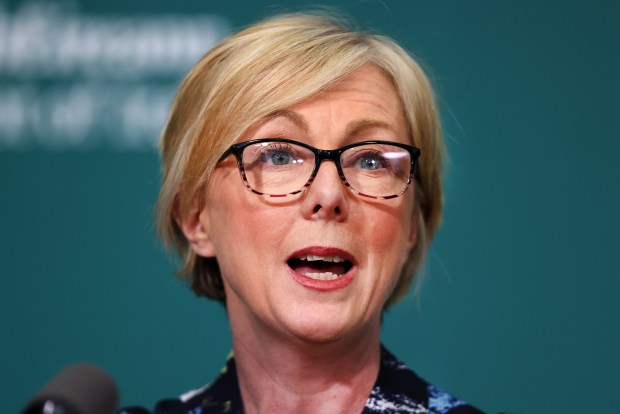
We need a major change in behaviour to get the society we want – it can’t be left to women alone to achieve it
IRELAND has made great strides in tackling gender inequality in recent years — but there’s still lots more to do.
On a daily basis here — and, indeed, across the world — women and girls are subjected to harassment, abuse, violence and assault by men.
They live within a culture of misogyny where sexism is tolerated. Obviously, it’s not all men who engage in sexist jeering or catcalling. But too few of them step up to challenge it.
It’s all linked. It’s time for a radical culture shift.
That’s why The Irish Sun, together with our partners at the Wireless group radio stations, joined together to say: Enough is enough.
Last year we launched our new campaign asking EVERYONE to CALL THIS OUT.
READ MORE IN OPINION
Writing in The Irish Sun, Senator Regina Doherty, says all of us have a role to play in tackling misogyny and creating an equal society, especially men.
'IT'S NOT RIGHT'
IF you ask any woman whether she has experienced misogyny or has been on the receiving end of toxic behaviour, the answer will be an unequivocal ‘yes’.
It’s not right, of course, but there is almost a sense that it’s part and parcel of life these days.
When you ask women in public life, they might tell you it’s part of the gig. I don’t believe it has to be that way.
Most read in The Irish Sun
Misogyny presents itself in many different forms — generalised sexist remarks or attitudes, crude language, toxic takedowns, especially on social media where calling a woman the ‘C’ word doesn’t even violate their community standards. I think that says it all.
On the International political stage, I recall a journalist asking the former New Zealand Prime Minister, Jacinda Ardern, if the only reason she was meeting her Finnish counterpart was because they were “similar in age”.
Ardern, and Nicola Sturgeon in Scotland, are two of the most high-profile female leaders who have very recently called it quits on frontline politics, citing the growing toxic nature in discourse.
Closer to home, we see a barrage of attacks against women in public life.
From the anonymous oddballs who leave nasty comments on Twitter, to personalised threats against us and our families, and even full-on stalking.
It should not come as a surprise that so many women ask themselves “is this really worth it?”
But it is absolutely worth it.
WOMEN AT THE DECISION-MAKING TABLE
Having women at the decision-making table gives betters outcome for all of society.
Whether in healthcare, education, childcare, all outcomes are better when all views are represented.
Women make up half our population but less than a quarter of our national parliament. There are four female Cabinet ministers out of 15.
It just proves that our progress in tackling equality has been far too slow.
The new 40 per cent male/female quotas will make a difference but only if parties put women in winnable seats and not just as second candidates in constituencies with a male TD already.
It’s the same in business. Any woman will tell you that being at the table really matters, gender balance matters.
It should not be left up to women alone to achieve it.
ALL MUST PLAY A ROLE
All of us have a role to play in tackling misogyny and men must be part of the solution.
We have made great strides in recent years in terms of legislation, from improving and reforming women’s healthcare to introducing new and unprecedented laws around domestic, sexual and gender-based violence.
Women have led on this and we have much more to do. But we need the support of our male colleagues.
Of course, that idea that men need to be part of the solution is not unique to politics.
It applies just as much to wider society, because – whether as a result of unconscious bias or sheer malice – misogyny is commonplace.
Changing any culture is tough but it is achievable.
It goes without saying we need to collectively break down the barriers that hold women back from career progression — which does mean a change in some people’s behaviour.
Leadership is important. In politics, it’s taken for granted. But we can all show leadership in addressing misogyny and supporting women.
That’s how we’ll get the society we want.










